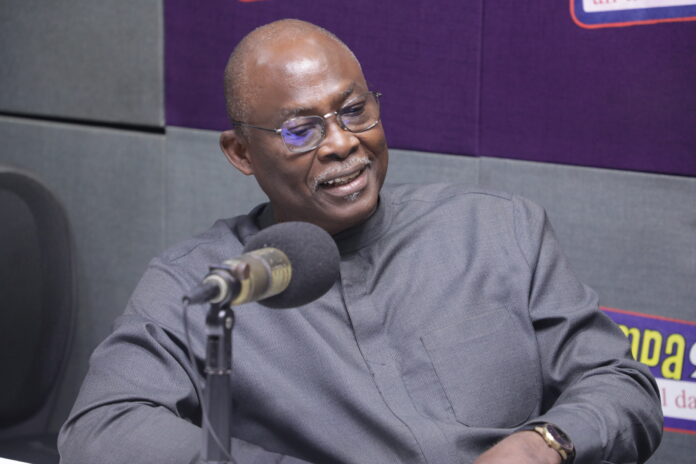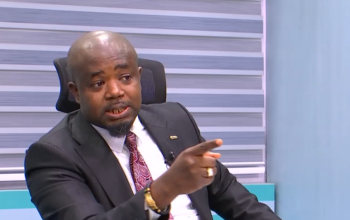Former Minister for Trade and Industry, Dr. Ekwow Spio-Garbrah, has publicly emphasized the importance of equal application of the law in response to the suspension of Chief Justice Gertrude Torkornoo. While his specific comments on the matter are not detailed in the available sources, his statement underscores a broader principle of justice and accountability, regardless of an individual’s position.
The suspension of Chief Justice Torkornoo, announced by President John Dramani Mahama on April 22, 2025, has sparked significant debate. The President acted under Article 146 of the 1992 Constitution, which outlines the process for the removal of high-ranking judicial officers. A prima facie case was established based on three separate petitions, leading to the formation of a five-member committee to investigate the allegations.The Ghana Bar Association (GBA) has expressed concerns, stating that the suspension was unconstitutional due to the lack of a published constitutional instrument or regulations guiding the exercise of the President’s discretion under Article 296. The GBA has called for the immediate revocation of the suspension and the enactment of clear regulations to guide such processes in the future.
In contrast, the Movement for Change (MFC) has defended the constitutional legitimacy of the suspension, asserting that the President’s actions align with the 1992 Constitution and that the Chief Justice has been given the opportunity to respond to the allegations, ensuring fairness under the law.
Legal experts, including former Deputy Attorney-General Diana Asonaba Dapaah, have criticized the suspension, arguing that there was no legal basis for establishing a prima facie case against the Chief Justice and that the President’s actions violated constitutional provisions.
As the investigation proceeds, the debate continues over the balance between upholding the rule of law and ensuring the independence of the judiciary in Ghana.
Dr. Ekwow Spio-Garbrah’s remarks, delivered during an exclusive interview with JoyNews’ Blessed Sogah in Abidjan, add a notable voice to the intensifying discourse around the suspension of Chief Justice Gertrude Torkornoo. His commentary underscores a foundational democratic principle: that the rule of law must apply equally to all, irrespective of office or status.
Speaking on the controversy, he stated:“As Chief Justice, we are implementing the law. She says the law is the law—and so the law is the law—and the law is being applied to her.”
Dr. Spio-Garbrah further emphasized that the legitimacy of the legal process must be upheld:
“The incidents that are being cited, unless she proves that they are incorrect, must stand.”
These comments come at a time when Chief Justice Torkornoo is legally challenging the inquiry process into the three petitions filed for her removal. She has filed an injunction at the Supreme Court, contesting the constitutionality and transparency of what she calls a “closed-door” investigation.
The debate has drawn sharp divisions across legal and political communities, with the Ghana Bar Association (GBA) questioning the legality of the President’s move and others defending it as constitutionally sound. Dr. Spio-Garbrah’s perspective offers a measured call for impartiality and due process, reinforcing that judicial accountability must not be seen as an attack on the judiciary but as a commitment to the rule of law.
Dr. Ekwow Spio-Garbrah’s continued reflections on the unfolding suspension saga of Chief Justice Gertrude Torkornoo reveal a careful balancing act—acknowledging due process while steering clear of personal conjecture.
Addressing the Chief Justice’s objections—which include claims of personal hardship and procedural inconsistencies—Dr. Spio-Garbrah consciously avoided commenting on her emotional state:
“It depends on how each individual responds to adversity. We all go through it—we lose loved ones, suffer accidents—and how we deal with it varies. So I won’t comment on what kind of adversity she claims to be facing,” he said, underscoring a universal truth about resilience while respecting her privacy.
When asked about a reported shift in the location of a disciplinary hearing—a detail that has fueled concerns over transparency—he responded pragmatically, emphasizing the authority of the executive branch in such procedural matters:
“All I’ve heard is that the location where she expected the hearing to take place wasn’t the one the government chose. But ultimately, it is the government that decides where the hearing should be held.”
Dr. Spio-Garbrah’s remarks suggest a broader message: that institutions must follow their lawful mandates, even amidst political sensitivity or public scrutiny. While he avoids inflaming tensions or making personal judgments, his comments reinforce a fundamental principle—no one, including the Chief Justice, is above the processes set out by law.In his characteristically measured tone, Dr. Ekwow Spio-Garbrah offered candid thoughts on the possibility of resignation in the case of Chief Justice Gertrude Torkornoo, framing it as a deeply personal decision rather than a matter for public pressure or political judgment.
“A resignation is an individual decision. One must weigh all the information available at any given time,” he remarked, acknowledging the weight of such a choice for any high-ranking official.
Notably, Dr. Spio-Garbrah pointed to a financial safeguard that could factor into the decision:
“But the good news, from what I know, is that the Chief Justice—and others in similar high public office—retire on their full salary.”
This, he suggested, raises a valid question about the rationale for enduring a highly public and contentious process when retirement comes with significant financial security. Without making direct accusations, he hinted that motives for remaining in office might not be strictly professional or legal:
“One must ask, why continue when the benefits of retirement are already assured?”
While his comments stop short of recommending resignation, they gently raise the possibility that other considerations—perhaps personal, symbolic, or strategic—could be influencing the Chief Justice’s decision to challenge the suspension and remain in office. His remarks reflect a broader commentary on leadership, dignity, and the calculus of public service at the highest level.
Dr. Ekwow Spio-Garbrah’s comments reached their most pointed when he addressed the personal motivations that might underlie a decision to remain in high office, even in the face of mounting controversy and legal scrutiny. While maintaining a tone of deference, he offered a candid perspective on the potential privileges tied to holding such a prestigious position:
“So if you’re going to retire on your salary, why worry about staying on? Unless, of course, you want to continue enjoying some privileges—like the ability for your husband and children to travel—which you might not have access to once you leave office.”
This statement subtly shifts the discussion from strictly legal and procedural issues to questions of personal benefit and legacy. Dr. Spio-Garbrah was careful to clarify that the ultimate decision rests solely with the Chief Justice:
“But the other standard benefits remain. It’s a personal judgement, and I’m not in a position to make that decision for her.” By highlighting the distinction between standard retirement entitlements and the discretionary perks tied to active office—such as diplomatic privileges or state resources—he opened a broader conversation about what motivates individuals to hold onto power, even when theirtenure is under strain. His comments resonate beyond this specific case, offering a nuanced look at the interplay between public duty, personal incentive, and institutional integrity.










